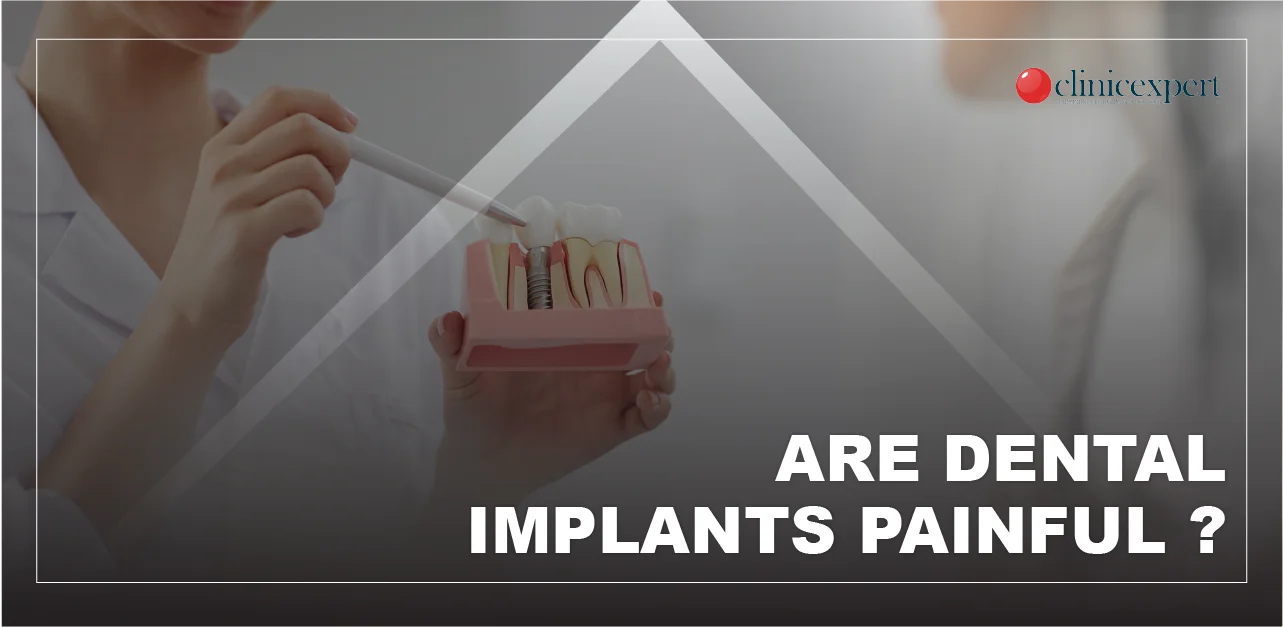It can be scary to have a surgical procedure done as it involves cutting open a portion of your body. The same is true for some dental operations. Getting a dental implant involves making an incision in your jawbone. Naturally, many people wonder how much pain they will experience after the procedure. So, are the dental implants really painful? Let’s find out.
Are Dental Implants Painful?
Dental implants can be a source of worry for some people who wonder about the potential pain involved. However, it’s important to know that the procedure is designed with your comfort in mind. The area where the implants will be placed is numbed before the process begins, ensuring that you won’t experience any pain during the actual placement in the jawbone. Moreover, if you feel anxious, many dentists provide options for relaxation, including sedation.
In the days following the procedure, it’s normal to experience a bit of mild soreness and swelling. But the good news is that these discomforts are usually manageable with over-the-counter pain relievers. It’s remarkable how dental technology has advanced, making implant surgeries much more comfortable than they used to be.
It’s worth focusing on the end goal: a fully restored tooth that looks and functions naturally. This can greatly enhance your overall quality of life. So, while there might be a slight level of discomfort involved, it’s a small step towards a fantastic outcome. Your dentist will be there to support you throughout the process, address any concerns you may have, and ensure that your journey to a confident smile is as smooth and painless as possible.
Pain Management after a Dental Implant Surgery
Managing any discomfort is a top priority for a smooth recovery. While the thought of pain might be concerning, it’s essential to know that there are effective strategies to keep discomfort under control during the healing process.
Right after the surgery, it’s common to experience some level of pain or soreness around the implant site. However, your dentist will likely prescribe or recommend pain medication to help you manage this discomfort. It’s crucial to follow the prescribed dosage instructions carefully and not to exceed them.
In addition to pain medication, applying cold packs to the outside of your mouth during the first 24 hours can help reduce swelling and provide relief. Be sure to wrap the ice pack in a cloth or towel to avoid direct contact with your skin.
Maintaining a soft diet for the first few days after surgery can also contribute to your comfort. Avoid foods that require excessive chewing, as they might irritate the implant site. Instead, opt for softer options that won’t put added pressure on the area.
Maintaining proper oral hygiene is vital, but be gentle around the surgical site when brushing and flossing. Your dentist will provide specific instructions on how to clean the area without disturbing the healing process.
While discomfort is normal during the initial stages, it should gradually subside over the next few days. If you notice any severe or prolonged pain, swelling, or unusual symptoms, don’t hesitate to contact your dentist. They can provide guidance and ensure that your recovery is progressing as expected.
Remember, the discomfort you might experience after a dental implant surgery is temporary and manageable. By following your dentist’s instructions and taking care of yourself, you’re on your way to enjoying the benefits of a fully restored and functional smile.
How Long Does Discomfort and Pain Last?
Typically, the first few days tend to be the most sensitive, as your body responds to the surgical process and begins the healing process.
Within the first week, you may notice a gradual reduction in pain and discomfort. Swelling should also start to subside during this time. Many individuals find that they can gradually transition to over-the-counter pain relievers as needed, as the initial intensity of discomfort lessens.
By the end of the second week, a significant improvement in your comfort level is commonly experienced. The majority of swelling should have resolved, and any residual pain is usually quite manageable. Your ability to eat, speak, and perform daily activities should be much improved at this stage.
As you approach the three to four-week mark, you’ll likely find that any lingering discomfort is minimal. Most individuals can resume their regular routines and dietary habits without significant issues. By this point, the healing process is well underway, and your body is adjusting to the presence of the dental implant.
Remember that these are general guidelines and everyone’s recovery journey may be slightly different. If you have concerns about persistent pain, swelling, or any unusual symptoms, it’s always best to consult your dentist. They can provide personalized advice and ensure that your healing progress is on track.

